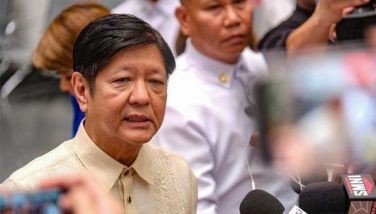Banks urged: Beef up vs money laundering
MANILA, Philippines – A senior lawmaker urged banks yesterday to further tighten their risk controls against tainted foreign money following reports that around $100 million supposedly stolen by computer hackers was recently laundered through some local banks.
“We are counting on the banks concerned to promptly address their apparent deficiencies in the fight against potential money laundering in light of the supposed incident,” House Deputy Minority Leader Arnel Ty said.
“We must stress that the banks are our first and last lines of defense against suspected ill-gotten funds coming in from abroad,” he added.
The Senate will start its inquiry on Tuesday into the alleged laundering of $100 million.
Separately, the Anti-Money Laundering Council and the National Bureau of Investigation are reportedly looking into the case.
Money laundering is the process of transforming the proceeds of a crime or criminal activities into funds that appear to have been lawfully obtained.
“Nobody can physically carry large sums of cash in and out of the country, so if any fraudulent funds are coming in from overseas, it will have to be coursed through banks. And this is precisely what happened, if it is true that the $100 million slipped in and out even before the authorities could freeze the money,” Ty said.
He said banks are supposed to have strong risk controls in place against possible dirty funds, and are expected to promptly report all suspicious activities.
“In fact, banks may deny service to clients who may be engaged in doubtful transactions,” he added.
The Anti-Money Laundering Law imposes rigorous requirements on bank customer identification, record keeping, and the reporting of transactions when there is information or reasonable basis to suspect that these were entered into for the purpose of laundering the takings from illegal activities.
The law also relaxes strict bank deposit secrecy rules, and provides for the freezing, seizure, forfeiture, and recovery of dirty funds and properties as well as for international cooperation.
As to the casinos where the $100 million was purportedly used to buy gambling chips, the state-run Philippine Amusement and Gaming Corp. said that “licensed casinos have internal controls against money laundering that generally follow industry standards in many jurisdictions throughout the world.”
- Latest
- Trending

































